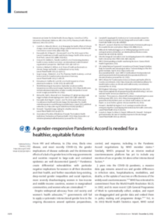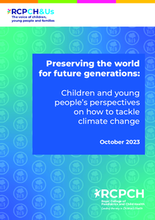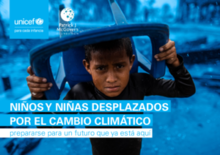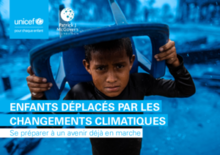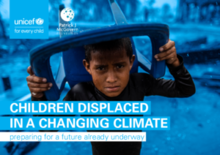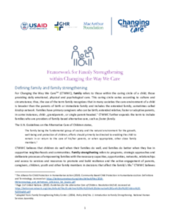Displaying 111 - 120 of 1343
To commemorate their 10th anniversary as an Alliance, this year’s Symposium took place on October 26, 2023, and offered a retrospective view of the Cape Town conference and the impact it achieved, both in the participating countries and globally. Then, through a deep dive into the experiences of three other countries— Romania, Rwanda and Viet Nam—it will explore the different ways countries have made progress in strengthening their workforce over the past decade and will highlight the continuing and emerging challenges facing the workforce in each country.
Tiegan Boyens, of ATD Fourth World and Teen Advocacy, shares about the importance of staying connected to birth family as an adoptee as well as maintaining other connections such as friendships made throughout childhood.
In this webinar, a new paper on strategies to prevent family separation is presented. Examples from Rwanda, Kenya, Uganda and Namibia are presented.
This comment in the October 2023 issue of The Lancet discusses gender equity in health care and how improving access to sexual and reproductive health services can lead to a considerable reduction in maternal mortality rates. Other reports emphasise how collecting and analysing sex-disaggregated and gender data can help identify disparities in access to education, health care, and other services that are crucial for overall development.
This literature review captures the perceptions and priorities of children and young people globally on climate change and its impact on their physical and mental health. The report summarises the voices and perspectives of almost 100,000 CYP from across the world.
El informe analiza los peligros meteorológicos más comunes que provocan el mayor número de desplazamientos: inundaciones, tormentas, sequías e incendios forestales.
Ainsi, le présent rapport analyse les aléas météorologiques les plus courants à l’origine de la majeure partie des déplacements, à savoir les inondations, les tempêtes, les sécheresses et les feux incontrôlés.
‘Children displaced in a changing climate: Preparing for a future already underway’ analyses the most common weather-related hazards that lead to the largest number of displacements: floods, storms, droughts and wildfires.
This data collection exercise was commissioned to assess the different types of Kafaalah care arrangements practiced by families and communities in Kilifi, Kenya. It affirms that Kafaalah is a widely known and practiced form of care among the Muslim community in Kilifi County.
This guide framework describes how CTWWC employs its family strengthening approach.

